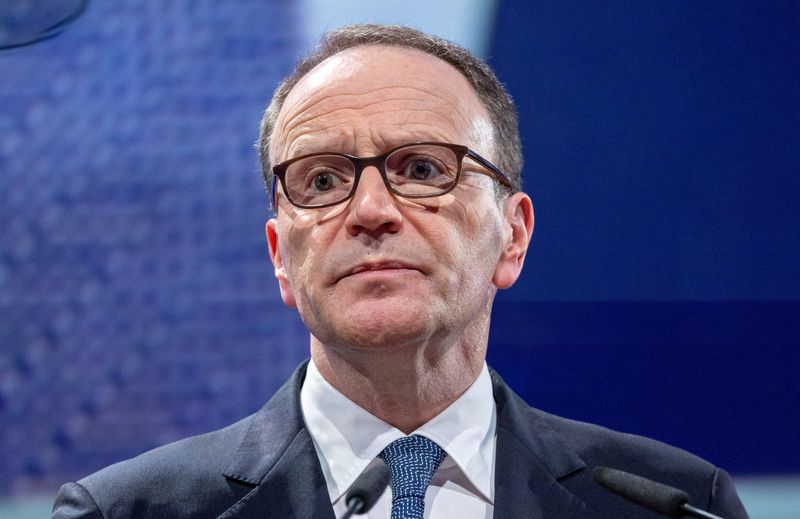By Richa Naidu
LONDON (Reuters) - Mark Schneider, Nestle's recently ousted CEO, steered the world's biggest food maker through the COVID-19 pandemic, grew margins despite a subsequent supply chain crunch, and pulled off a historic reorganisation.
So when did he lose the board's faith?
While Nestle declined to comment on the nature of his departure when announcing it on Thursday, and Schneider did not respond to a request to do so, three sources told Reuters on Friday that the executive had been axed.
One source said the decision was reached after Nestle's board became increasingly concerned about weak sales growth. They also cited worries about slowing product development, with new and revamped products taking longer to be devised and rolled out.
"Two years ago, Mark Schneider could do nothing wrong; now he seems to get it all wrong," Bernstein analyst Bruno Monteyne said, flagging a drop in Nestle's stock, which has slid roughly 30% since its pandemic high in early 2022.
But, "is that a good reason to break up with a CEO that was only two years ago feted as the best CEO in the sector?" Monteyne asked.
Schneider, 58, in 2017 became the first company outsider to lead the maker of KitKat bars and Nescafe coffee in nearly a century. Its stock peaked during his tenure, tapping a record of 129.5 Swiss francs ($152.73) at the start of 2022.
That year, he led an overhaul of the company, changing its executive board to align with a new geographic structure.
Where rivals like PepsiCo (NASDAQ:PEP) and Unilever (LON:ULVR) were not able to sustain operating margin growth in the seven years to 2023, Schneider grew Nestle's to 17.3% from 16.5%.
This feat was particularly remarkable, given the hit industry margins took during the pandemic.
But the board's concerns about sluggish sales volumes and underinvestment are not unfounded, and have been raised repeatedly in calls with analysts and investors in recent years.
SLOW GROWTH, INNOVATION
Nestle has posted patchy sales growth through Schneider's nearly eight-year tenure in comparison to some of its competitors, losing the momentum it gained during the pandemic by alienating shoppers with too-high prices in 2023.
It and the rest of the consumer goods industry hiked prices dramatically in the face of sky-rocketing supply chain and raw materials costs, fuelling a global cost-of-living crisis.
In response to a question during his final post-results call in July, Schneider acknowledged that supply chain constraints in 2022 had left "less energy" for innovation, which he said may have inadvertently helped private label, or store-brand, goods compete.
This was a new position - Schneider had previously brushed off the threat posed to Nestle by private label competition, saying that while the company had seen "limited" signs of that, it was likely to be temporary. "I'm not concerned," he said at the time.
But in the year to mid-June, according to Nielsen data analysed by Barclays, Nestle's grocery store market share had fallen dramatically in Europe from the year before and been deeply hurt in the U.S.
Other companies like PepsiCo and Unilever also lost market share and sales volumes due to higher prices. However, these other major players have in recent quarters managed to boost volumes again, garnering praise from analysts for supporting their comebacks with innovation and strong advertising.
Nestle was initially less able to slow its price hikes and even when it did last year, volumes - or 'real internal growth'- stayed weak.
Schneider's step back on marketing in 2022 has also been criticized repeatedly by investors and analysts, despite his renewed push for advertising since.
He has said himself that marketing was "quite muted" in 2022 due to supply chain and capacity constraints.
His replacement, Laurent Freixe, a 62-year-old Frenchman, started working for Nestle 40 years ago in marketing roles before moving up the ranks to executive positions.

He is seen as a food industry insider, with a broad network of executives and experts from within and outside the Swiss group. He has immediately pledged to focus Nestle on organic growth rather than acquisitions.
($1 = 0.8479 Swiss francs)